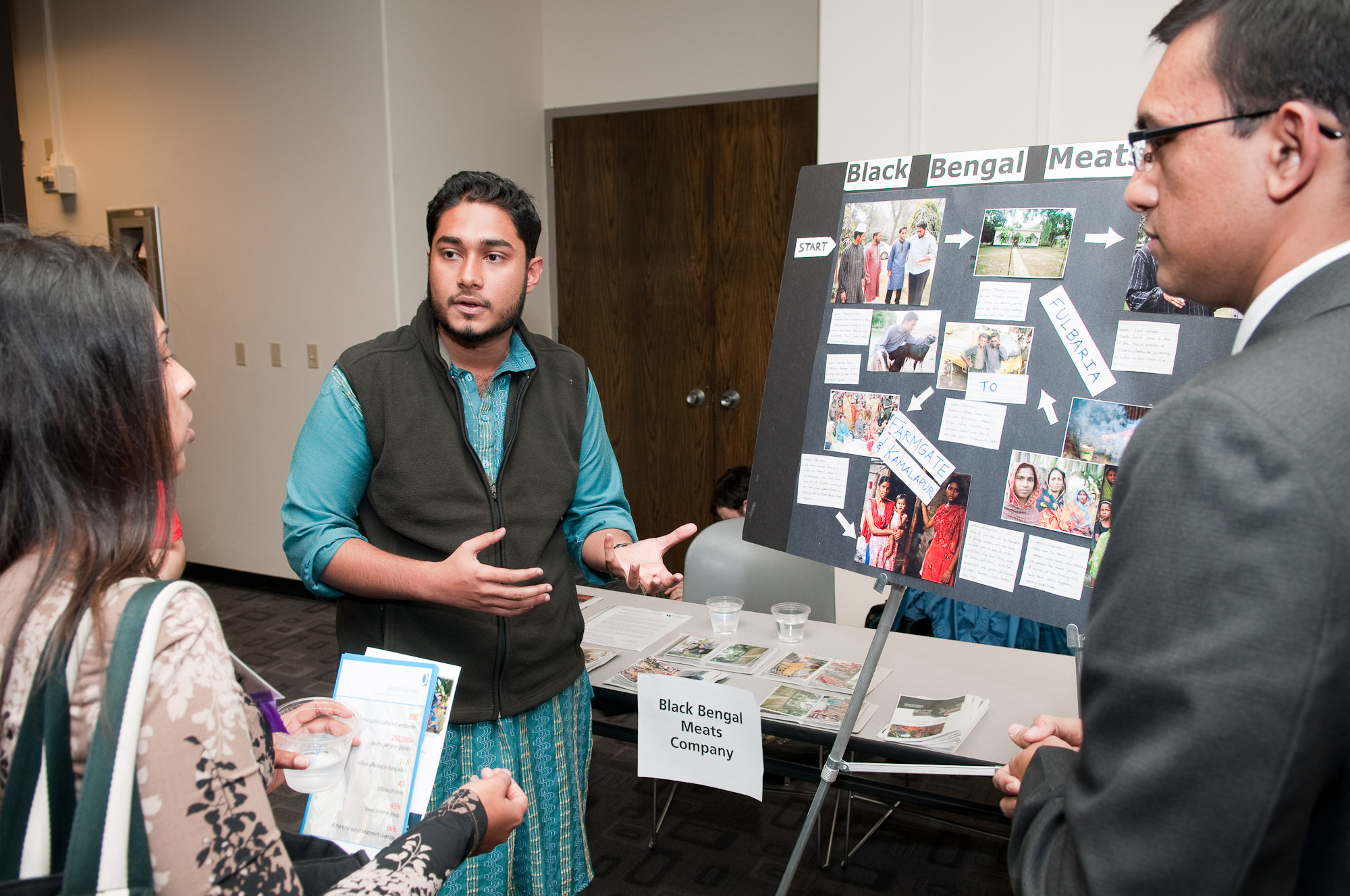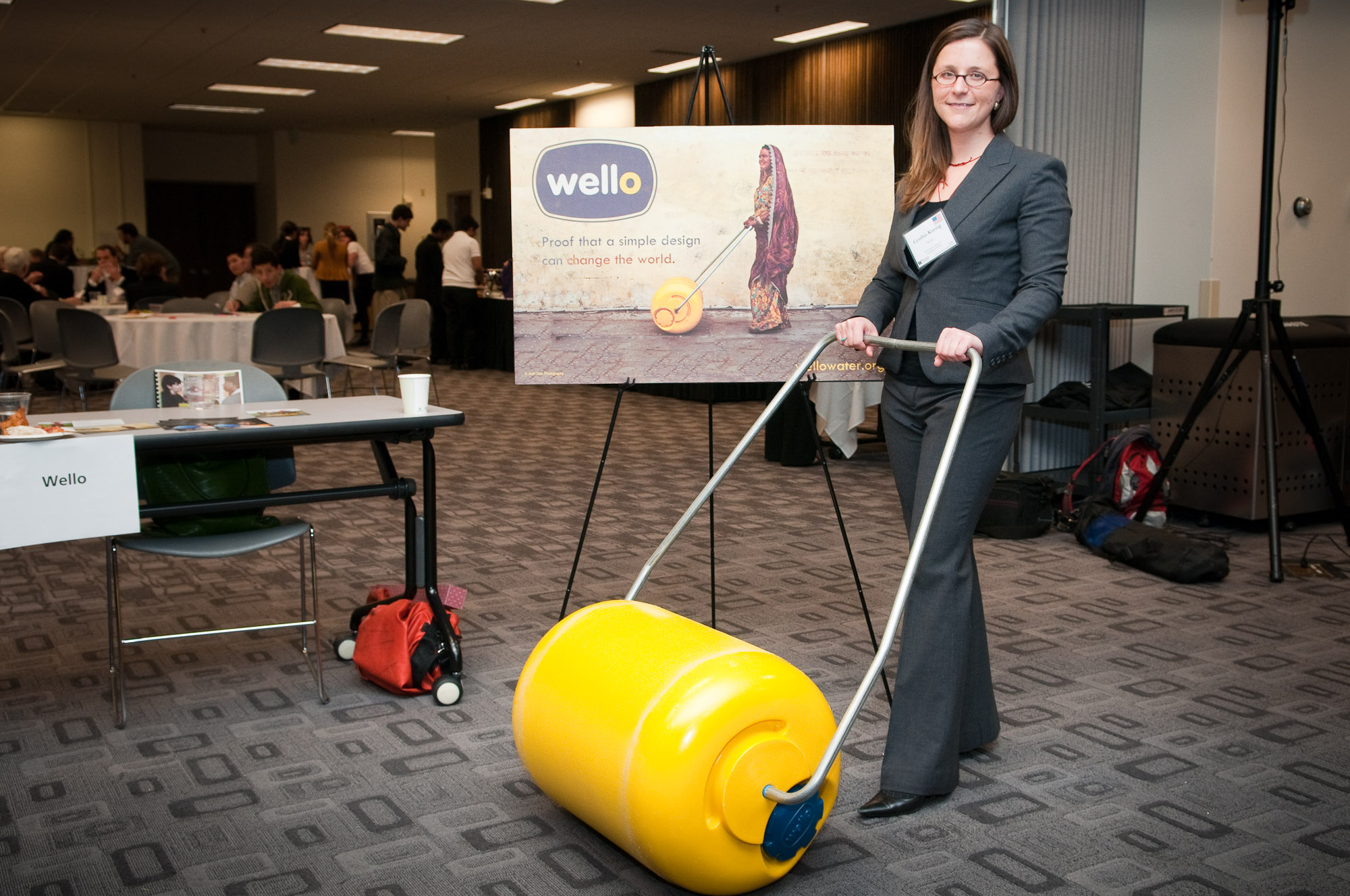Creative Capitalism, Shared Value, social entrepreneurship

At GSEC: Black Bengal meats team presents sustainable community farming and better nutrition in Bangladesh to judges and visitors
Can business change the world for the better? Yes it can if the student teams participating in this week's Global Social Entrepreneurship Competition (GSEC) are any indication. With a deep commitment to solve a social issue through a sustainable business plan, there seems to be no stopping these individuals.
GSEC, an annual competition hosted by the University of Washington Foster School of Business brings 10-15 student teams from around the world to Seattle. These semi-finalist teams spend a week visiting companies, meeting with mentors, practicing their pitches and competing in a series of events leading up to the final competition. This year the participants hailed from Bangladesh, India, Peru, Ukraine and the United States. From clean toilets and waste processing in Kenya to water transportation and storage in India to sustainable fish farming in Ghana and skilled workforce training in Ethiopia, the range of business ideas is amazing. Check on the full list of semi-finalists.
Microsoft has been a sponsor of GSEC for seven years now and we are proud to see how far this competition has come. From my perspective, one of the best aspects about GSEC is the opportunity for Microsoft employees to participate and support the event. This year we had eight employees serving in various capacities as coaches, presenter, mentors and judges, including Lili Cheng, our GM at Microsoft FUSE (Future Social Experience) labs, who served as a final round judge. Lili also presented the Information and Communication Technology (ICT) award at the GSEC Awards Banquet yesterday evening.
Over the past several years we have increasingly seen the use of ICTs across many of the GSEC semi-finalist teams. In almost every case, technology is leveraged for greater efficiency and effectiveness and in many instances technology is the core component in the business plan. Just think of mobile phones - with access increasing almost exponentially in developing and emerging markets (5 billion subscribers is a recent figure), they come into play in everything from marketing, to data collection to telemedicine. And social entrepreneurs like those with us in Seattle this week are using ICTs in innovative ways that were unimaginable just 5 or 10 years ago. Recognizing the growing use of ICTs in the GSEC business plans, we decided this year to sponsor a new award for innovative use of ICT, which comes with a $10,000 prize.
The ICT award this year went to Next Drop - an innovative approach to alerting consumers to the availability of water in their neighborhood via cell phones. By adding a cell-phone based reporting system among the utility workers tasked who open water main valves, Next Drop can now send advance alters to customers that water will be available in the next 30-60 minutes. The time saved by freeing up consumers to go about other activities (including attending school for children!) rather than waiting at home in the hope that water will be turned on is a major improvement in the daily lives of these individuals.
The finalist teams are off at a breakfast with potential investors this morning and having met these amazing teams I can almost guarantee they will be walking away with interested investors and invaluable connections. It was again a please to participate in GSEC this year and we look forward to next year.

"Wello - changing lives through a simple solution to a persistent problem, transporting and storing water"
For more pictures and footage, you can check out GSEC's Facebook
For more information on Microsoft's Citizenship effort please visit:
To stay up to date on the latest Citizenship Stories:
Twitter.com/msftcitizenship (@msftcitizenship)